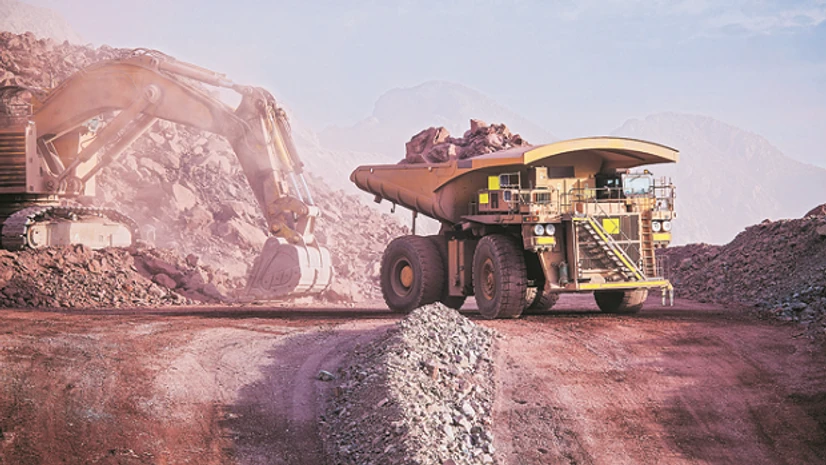The Minerals Security Partnership (MSP) is a global initiative by the US to bolster critical mineral supply chains. It is also known as the critical minerals alliance.
It was announced by the US and other key partner countries in June 2022 with an aim to ensure that critical minerals are produced, processed and recycled in a way that helps countries secure a stable supply of critical minerals for their economies. It also aims to weaken China's grip on supplies of critical minerals worldwide.
The focus is primarily on the supply chains of critical minerals such as cobalt, nickel, lithium and the 17 "rare earth" minerals.
However, India is not a part of this partnership.
Prime Minister Narendra Modi's ongoing state visit to the US is expected to see a discussion on India's possible entry into the global alliance on critical minerals.
Officials said various ministries, including the Ministry of Finance, have communicated to the Ministry of External Affairs to explore the possibility of India joining the partnership.
More From This Section
An official said, "The issue will be discussed during the Prime Minister's visit. Officials will explore preparatory talks on the subject. As newer manufacturing verticals are established in India, sourcing many critical minerals in large volumes will become necessary. We expect dependence on any one country to become a key challenge then."
Critical minerals
A critical mineral is a mineral resource that is essential to the economy and has high economic vulnerability and high global supply chain risk.
Critical minerals have a supply chain at risk of disruption. They are used to manufacture advanced technologies, such as mobile phones, tablets, electric vehicles, solar panels, wind turbines, fibre optic cables, and defence and medical applications.
Many critical minerals, including rare earth minerals and metals such as lithium, gallium, tellurium, and indium, are central to high-tech sectors. Rare earth (RE) comprises 17 elements which are classified as light RE elements (LREE) and heavy RE elements (HREE).
Individual countries develop their own list of critical minerals depending on the importance of particular minerals in the industrial sector and the strategic assessment of supply risks.
The major critical minerals are graphite, lithium and cobalt. They are critical for making semiconductors and high-end electronics manufacturing. They are also used in manufacturing fighter jets, drones, and radio sets.
Also Read: PM Modi's US visit: India's entry into critical mineral alliance on table
Also Read: PM Modi's US visit: India's entry into critical mineral alliance on table
Top producers of critical minerals
According to the International Energy Agency, the major producers of critical minerals are China, Congo, Chile, Indonesia, South Africa, and Australia. China has global dominance in terms of processing.
Rare earth minerals
Rare earth minerals are a set of 17 metallic elements, which includes scandium, yttrium, and the 15 lanthanides (15 metallic chemical elements with atomic numbers 57–71, from lanthanum to lutetium).
Rare earth minerals are necessary components of a wide range of applications such as cellular telephones, flat-screen monitors and televisions, and electric vehicles.
The amount of rare earth minerals used in a product is significantly less, but it can be necessary for the device to function.
Countries part of the MSP
Japan, Australia, Finland, the US, Germany, the UK, Canada, the Republic of Korea, France, Sweden, and the European Union are part of the Minerals Security Partnership,
India's concerns
Some rare earth elements available in India are: neodymium, lanthanum, cerium, samarium, and praseodymium. Some elements classified as heavy RE elements, such as dysprosium, terbium, and europium, are not available in the country in extractable quantities. It relies heavily on China for HREE.
India has recently witnessed a shift from public and private transport to electric vehicles. This underlines the need to secure the supply of critical minerals.
India needs a multi-dimensional mineral policy to address the issues posed by the uneven distribution of rare earth elements, the Economic Survey 2022-23 had pointed out.
India-Australia Critical Minerals Investment Partnership
India and Australia decided to strengthen their partnership in the field of projects and supply chains for critical minerals under the Australia-India Critical Minerals Investment Partnership.
In March 2022, Australia allocated $5.8 million to the three-year partnership.
Under this partnership, India can take resources from Australia to meet the growing demand for critical minerals to help India's space and defence industries and the manufacture of electric vehicles.
According to a statement released by the Australian Trade and Investment Commission, the companies and institutions in Australia will partner with India to supply critical minerals, export services and technology to "process, refine, recover, and recycle critical minerals, help with mineral exploration in India, carry out joint research projects, and support India's mining-related environmental management".
In July 2022, the Union minister for parliamentary affairs, coal and mines, Pralhad Joshi, visited Australia for a six-day tour to strengthen bilateral relations between the two countries.
A statement released by the Ministry of Mines said, "as part of its larger mission to transition to clean sources of energy, India is set to move a step closer to realising its ambition to develop secure, robust, and commercially viable strategic critical minerals".

)
